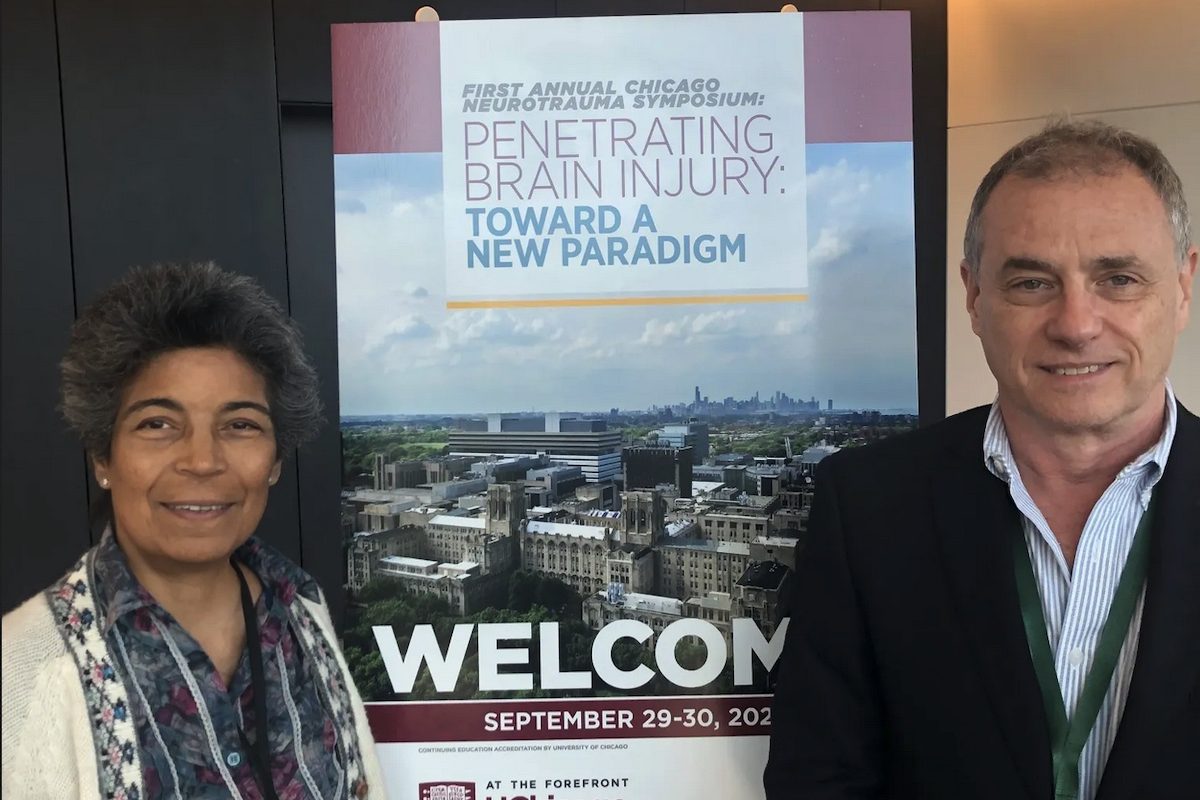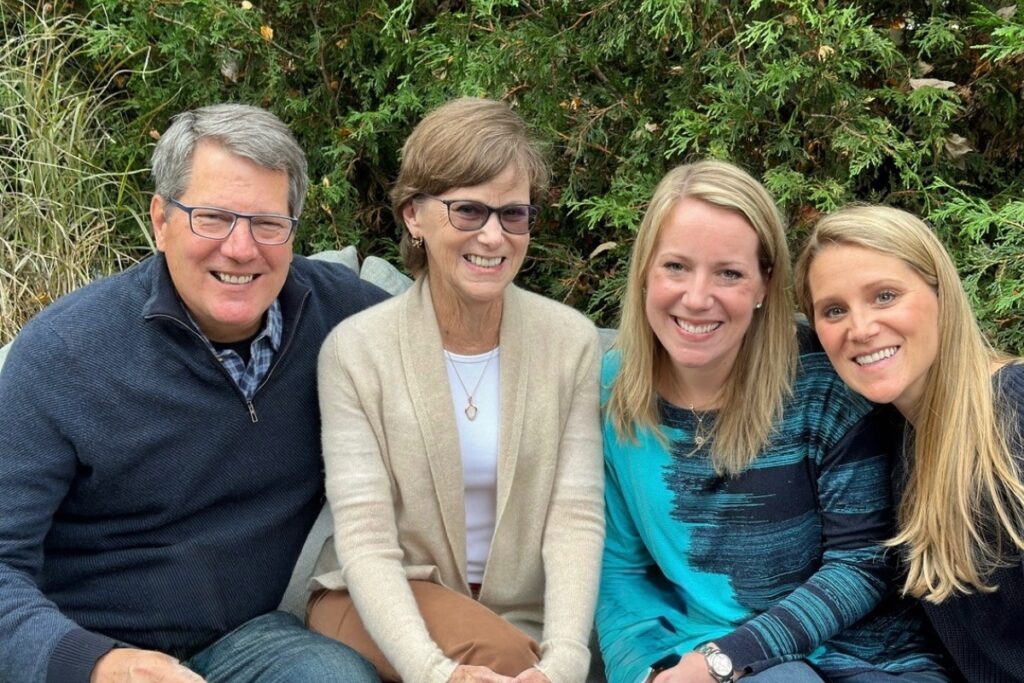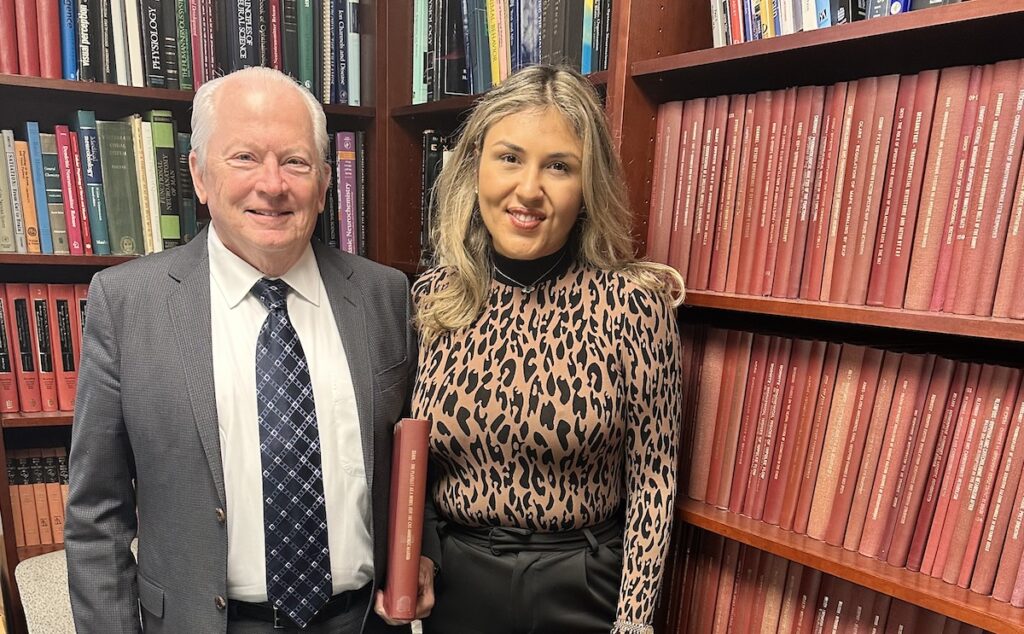Chemistry, creativity, and neural connections inspired Rosabel Young, MD, in her clinical neurology practice and in her support of research into traumatic brain injury (TBI) at the University of Chicago Medicine. Young funded a two-year pilot study entitled Neuroendocrine Function in Acute Brain Injury by Ron Cohen, MD, chief of the Section of Adult and Pediatric Endocrinology, Diabetes, and Metabolism, and Fernando Goldenberg, MD, professor of neurology and neurological surgery.
“Neurology was in the family,” Young said, remembering her aunt playing a game with a skull and pointing out the names of the cranial bones when she was a child. She enrolled in math programs at the University of Chicago while still in high school, followed by four years of college and a master of science in biochemistry there, before attending medical school at the University of Illinois at Chicago. “Chemistry was very important to me in medical school,” she said, “especially as I studied pharmacology, because I already understood the chemical structure of drugs from what I had learned at the University of Chicago.”
During her fellowships at the National Institutes of Health and University College London Queen Square Institute of Neurology, Young honed her interest in neurology. Today, she has a clinical neurology practice in Inglewood, CA and sees patients with conditions ranging from brain trauma to memory disorders to Parkinson’s disease. Young noticed that artistic pursuits could help patients with TBI recover brain function and emotional competency, for instance, as they formed connections between words and images while drawing and painting.
Building on those observations, Young formed the Wentworth Norton Group, a nonprofit corporation focused on bringing together artists from around the world to discuss art projects to help people with brain injuries. The foundation operates an art gallery in Barcelona and hosts art therapy events and programs.
In her practice, Young observed patients with mild TBI who were diagnosed with stress responses such as anger and headaches. “Psychology has an underlying chemical cause. We shouldn’t say, ‘It’s just stress’ because the stress response is a neuro-endocrine process, and its treatment can overcome a significant disabling co-morbidity, or coexisting health condition, in post-TBI patients,” she said. “The theory is that TBI causes endocrine disruptions, and we need to decipher the precise pathways.”
Young’s interest in the effects of TBI and the importance of follow-up care led her to support the study by Goldenberg and Cohen focusing on the hormonal behavior of patients with TBI admitted to UChicago Medicine.
Goldenberg and Cohen hope to identify patterns of hormonal dysfunction in patients with TBI and observe how these patterns correlate to the nature and severity of the initial injury. By studying hormonal behaviors of patients, they intend to determine if hormonal abnormalities are short-term effects of TBI, or if they persist over a longer term. The study has the potential to improve both understanding of TBI and how it affects brain function, as well as the quality of life of TBI patients, potentially leading to improved standards of patient care.
Young says she looks forward to seeing the results of the two-year study. “The best part of practice today is taking care of patients and learning from them,” she said.




